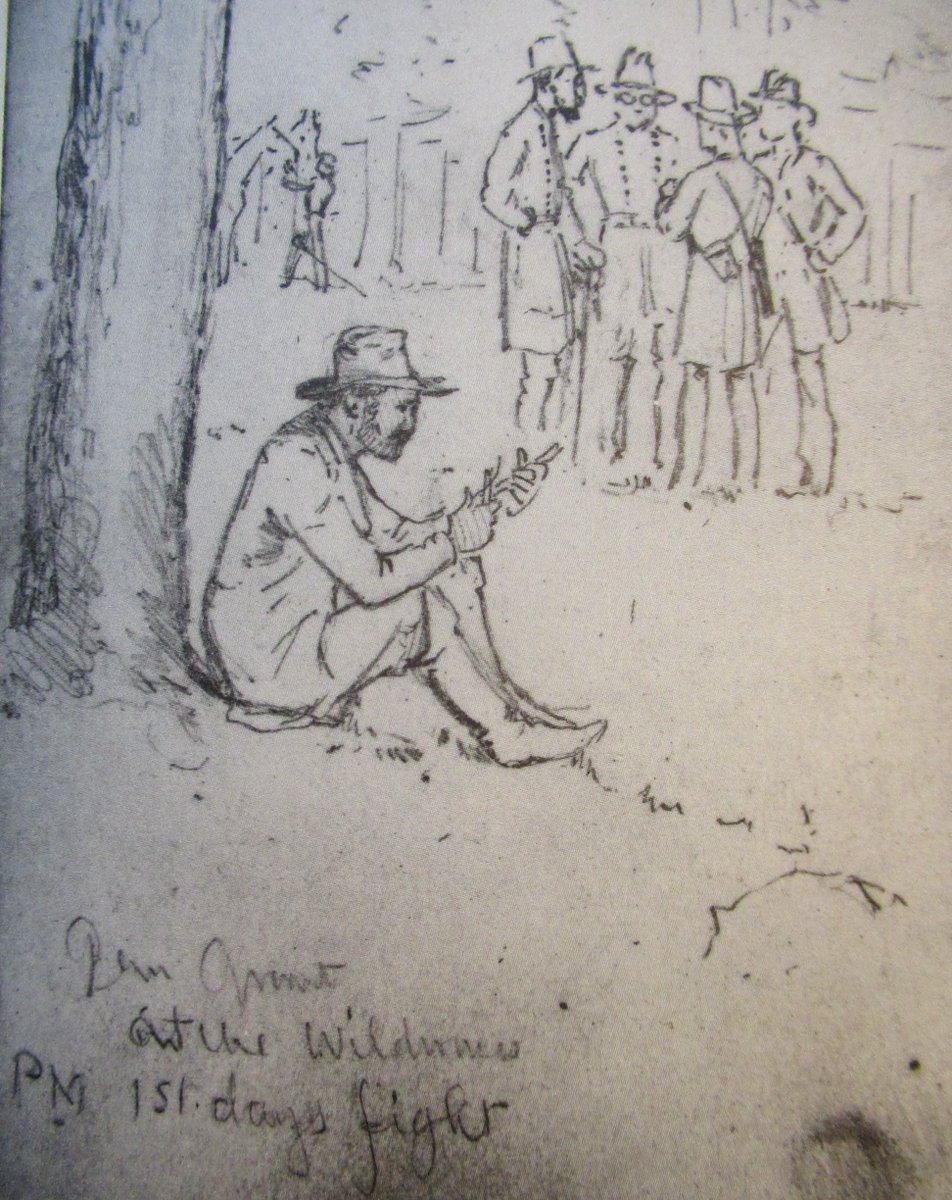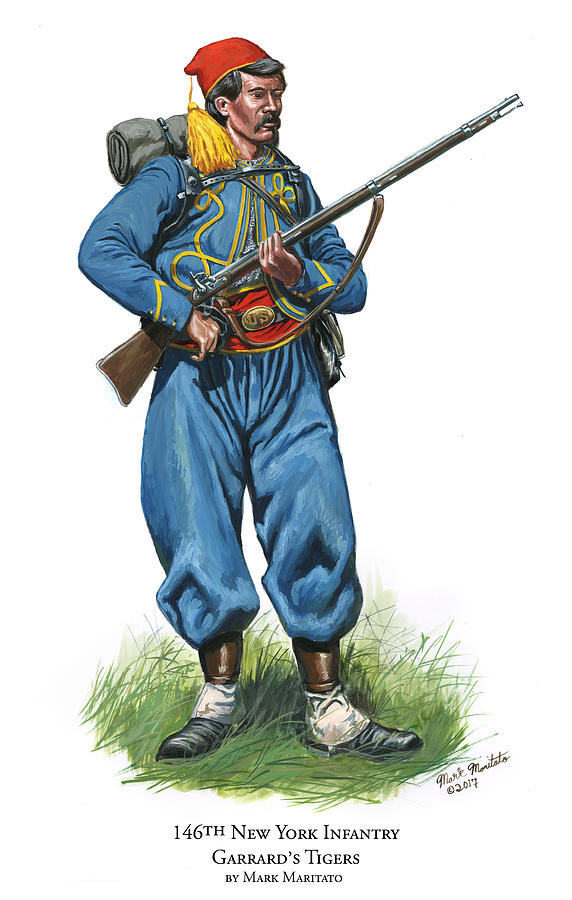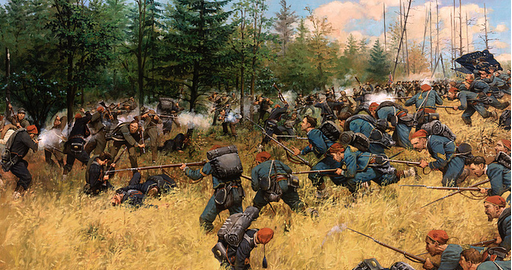This is one of the most interesting (and sometimes misunderstood) images of Ulysses S. Grant on the afternoon of May 5, 1864.
It presents Grant whittling away with a knife at his headquarters as the Army of the Potomac swung into action against Robert E. Lee& #39;s Army of Northern Virginia (Burnside& #39;s separate IX Corps would be up later).
Some people interpret this as a man whittling away without a care in the world: a sign of the calm, imperturbable Grant.
William McFeely saw it as potentially mindless, even insensitive to the carnage around him.
Both interpretations are wrong.
William McFeely saw it as potentially mindless, even insensitive to the carnage around him.
Both interpretations are wrong.
First, let& #39;s remember what was happening at the time of this sketch:
Grant and AotP commander George G. Meade had been directing the Army of the Potomac southward when word came of Confederates approaching from the west along the Orange Turnpike.
Grant and AotP commander George G. Meade had been directing the Army of the Potomac southward when word came of Confederates approaching from the west along the Orange Turnpike.
Grant and Meade decided to fight. Elements of G. K. Warren& #39;s V Corps moved to meet the Confederates along the turnpike by Saunders Field.
Among them was my gggf& #39;s 146th New York, which would become engaged in a rough fight that day.
Among them was my gggf& #39;s 146th New York, which would become engaged in a rough fight that day.
Grant had appeared that day in full dress uniform with white cotton gloves, sash, and sword. It was as if he was dressing to impress the new army under his direction. Easterners liked to dress up. The 146th NY sure did.
In November 1863 at Chattanooga Grant had enjoyed a panoramic view of the battlefield.
In the Wilderness he saw virtually none of the fighting. He heard it. He commanded by sound. If the sound got louder, the enemy was advancing.
In the Wilderness he saw virtually none of the fighting. He heard it. He commanded by sound. If the sound got louder, the enemy was advancing.
The only way to command was to send couriers, staff officers, and other commanders off into the woods and wait. And wait. And wait. Then reports would come back, Grant and Meade would respond, and that& #39;s how one commanded in the Wilderness.
Grant had never commanded these men before. They had seen generals come and go. He did not know how they would fight, and they did not know how he would command.
So Grant issued his orders. Then he sat down. He lit a cigar. He took out a pen knife, picked up a piece of wood, and began to whittle.
He had done all he could do for the moment. Now he had to wait.
He had done all he could do for the moment. Now he had to wait.
In the afternoon General Charles Griffin came to headquarters and began to complain about lack of support. Meade addressed Griffin, but Grant snapped that Griffin was insubordinate and ought to be arrested.
He was so angry that he called Griffin "Gregg."
He was so angry that he called Griffin "Gregg."
It was left to Meade to calm Grant down, explaining that at times Griffin was a little excitable.
Given what had happened at Saunders Field, that was understandable. It was not a well-fought engagement for US forces. the 146th and 140th New York really got hit.
Given what had happened at Saunders Field, that was understandable. It was not a well-fought engagement for US forces. the 146th and 140th New York really got hit.
So Grant returned to smoking and whittling, whittling and smoking.
He wasn& #39;t calm. He was anxious. Would this army fight? How would it fight?
He wasn& #39;t anxious about Lee. He was anxious about Meade ... Burnside ... their generals.
He wasn& #39;t calm. He was anxious. Would this army fight? How would it fight?
He wasn& #39;t anxious about Lee. He was anxious about Meade ... Burnside ... their generals.
By day& #39;s end, the fighting had stabilized. So had Grant. But the experience had taken its toll on him.
Gone was the sash and sword. The uniform coat was now unbuttoned. The gloves? Shredded by the whittling.
At least Grant was now recognizable to those who knew him.
Gone was the sash and sword. The uniform coat was now unbuttoned. The gloves? Shredded by the whittling.
At least Grant was now recognizable to those who knew him.
That evening, a NY Tribune reporter, Henry Wing, decided it was time for him to hurry off to file his report of the day& #39;s fighting. He approached Grant and asked for a comment.
"Well, yes,& #39;" Grant replied. "You may tell the people that things are going swimmingly down here."
"Well, yes,& #39;" Grant replied. "You may tell the people that things are going swimmingly down here."
The sarcasm was not lost on Wing.
Then, as Wing turned to go, Grant got up and came over to him. The two men walked away from headquarters.
Grant asked if Wing was headed to Washington. Wing said yes.
Then, as Wing turned to go, Grant got up and came over to him. The two men walked away from headquarters.
Grant asked if Wing was headed to Washington. Wing said yes.
Grant looked at Wing. "Well, if you see the President, tell him from me that, whatever happens, there will be no turning back."
And there wasn& #39;t.
And there wasn& #39;t.

 Read on Twitter
Read on Twitter




